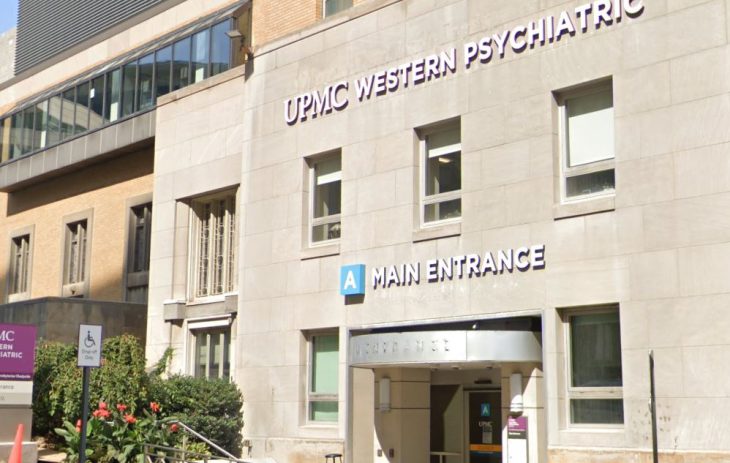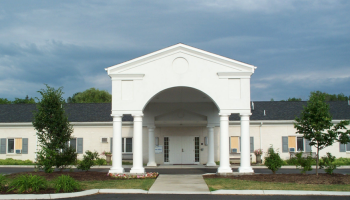About UPMC Western Psychiatric Hospital
Comprehensive inpatient detox and medication assisted treatment (MAT) for substance use disorders are offered by UPMC Western Psychiatric Hospital in metropolitan Pittsburgh, Pennsylvania, not too far from Schenley Park. You will get a thorough assessment for withdrawal symptoms and appropriate interventions. Their expert withdrawal management care can result in a safe detox thanks to their more than 70 years of experience.
MAT combines behavioral therapies, counseling, and effective medications. This approach helps reduce drug cravings and control withdrawal symptoms. They prescribe buprenorphine for alcohol use disorders, naltrexone for tobacco use disorders and methadone for opioid use disorders. More medications may be available to treat mental health issues linked to substance abuse.
Seamless care is emphasized heavily in their approach. To create a complete picture of your needs, they integrate all of your medical and mental health information. Their team will assess your case and develop a customized treatment plan. Their outpatient addiction treatment eliminates the need for an overnight hospital stay.
If you have any co-occurring behavioral and mental health issues, such as eating disorders, they offer medication management and support. They also offer women with substance use disorders specialized services like childcare and support during pregnancy recovery.
For those who require more intensive support, their substance use intensive outpatient programs provide a more comprehensive level of care. Depending on your specific needs it lasts for three to six weeks.
Their inpatient psychiatric dual diagnosis unit provides specialized care for individuals with mental health disorders and substance abuse. Support can be provided throughout your journey by peer navigators who have recovered from substance use disorders. Additionally, they help you set and accomplish your own objectives.
Levels of Care
-
Inpatient
Inpatient and residential programs provide round-the-clock medical and emotional support as you live at the treatment facility. This level of care may be recommended if you have severe addictions or mental health conditions since it removes outside distractions and allows you to focus solely on therapy.
-
Outpatient
In outpatient therapy, you’ll attend therapy sessions several times each week while living at home. This is ideal if you have a strong support system and a lower risk of relapse. Outpatient treatment offers flexibility to maintain work, school or family obligations.
-
Dual Diagnosis
Dual diagnosis programs address substance use disorders and co-occurring mental health conditions simultaneously. This integrated approach to care improves the likelihood of long term recovery and stability by addressing the root causes of addiction.
Detox Service Setting
-
Inpatient Detox
Inpatient detox occurs in a dedicated treatment facility. You’ll live there around the clock and receive intensive medical support and supervision to help manage your withdrawal symptoms. It is suitable for individuals with moderate to severe addictions as it ensures a stable detox environment.
-
Outpatient Detox
Outpatient detox gives you access to medically supervised withdrawal services while still allowing you to live at home. You’ll attend a clinic for treatment and monitoring. This flexible option is suitable for those with mild to moderate withdrawal symptoms who have strong support systems.
Programs
-
Adult (18+)
Adult programs address the substance use and life challenges specific to adults. Therapists can deliver sessions in individual, group and family settings. Services often include job support and life skills training in a structured environment.
-
Alcohol Detox
Alcohol detox programs offer medical support to help individuals withdraw safely from alcohol. Your care team may use medications to ease your symptoms and provide medical monitoring to address complications.
-
Cognitive Behavioral Therapy
Cognitive behavioral therapy focuses on changing harmful thought patterns and behaviors associated with addiction. You’ll learn healthier coping mechanisms by identifying and replacing negative thoughts. This improves your emotional resilience and decreases your relapse potential.
-
LGBTQ Friendly
LGBTQ friendly programs create an inclusive and affirming space for recovery. Treatment is sensitive to issues like discrimination and stigma. You’ll receive support and therapy that respects and acknowledges your unique experiences.
-
Men
Men's programs address substance use while also considering the social pressures, family roles and mental health concerns that are specific to men. You’ll learn healthy coping mechanisms as you build emotional resilience and develop communication skills.
-
Opioid Detox
Opioid detox uses medications to ease severe withdrawal symptoms. It also includes medical supervision to help you manage potential complications. These services allow you to stabilize and begin a recovery plan.
-
Seniors (65+)
Senior programs address the unique needs of older adults like chronic pain, grief and isolation. Programs include peer support and medical oversight for age related health concerns. The goal is to improve quality of life and promote sober aging.
-
Women
Women's programs offer a safe and supportive space to focus on gender specific issues such as trauma, family roles and mental health conditions. Therapists tailor the sessions to address women's needs and foster empowerment in a healing and nurturing environment.
-
Young Adult (18 - 25)
Young adult programs are designed for individuals who are transitioning into adulthood. Topics of discussion typically include identity, independence and peer relationships. Providers may also offer life skills training and career support.
Payment Options
- Payment Assistance
- Medicaid
- Medicare
- Military Insurance
- Private Insurance
- Self Pay
Accreditations
-
 Joint Commission
Joint Commission
Contact
3811 O'Hara Street
Pittsburgh, PA 15213





